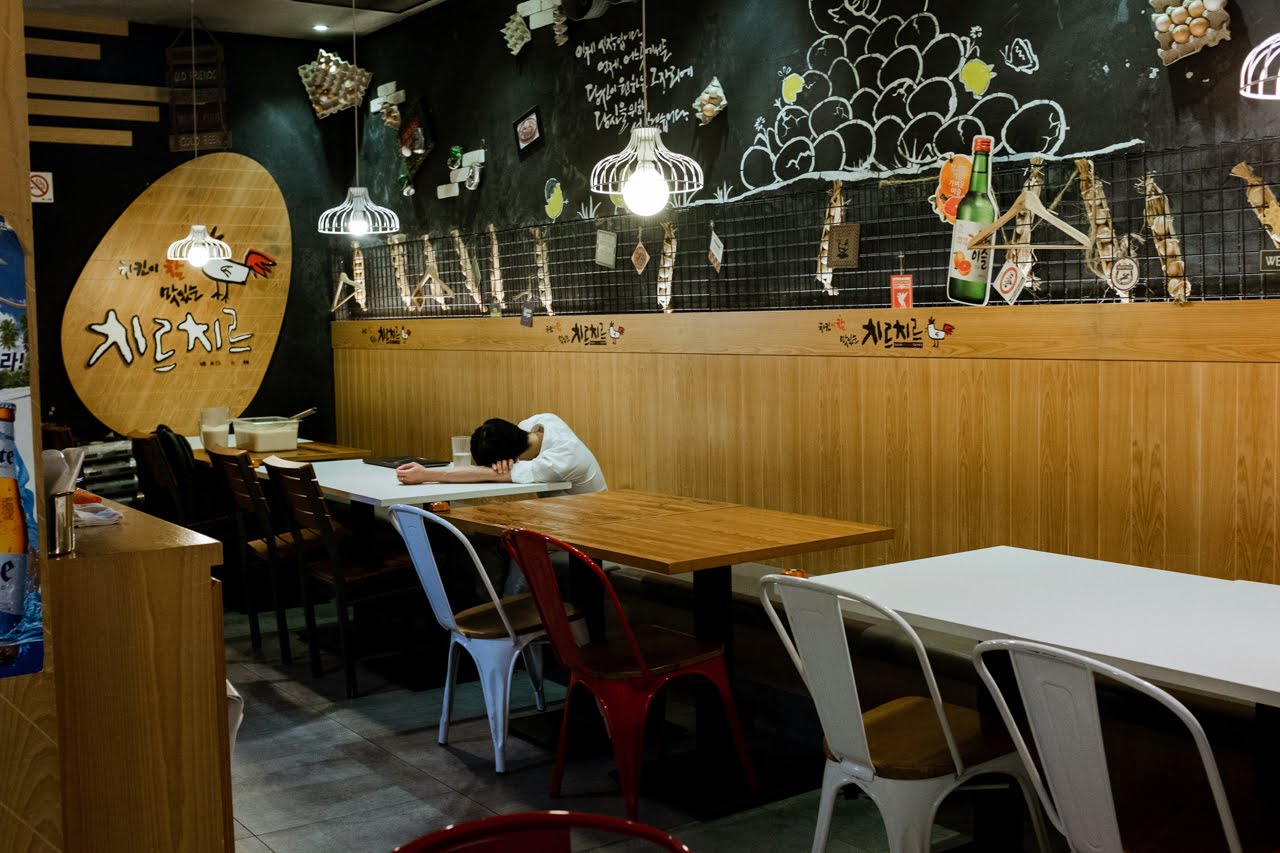Last week when I interviewed Shanmei Lim, owner of Penang Kitchen via video conference, I sensed both resignation and a renewed urgency in her voice.
“There’s fire under everyone’s ass,” she stated matter-of-factly. “Can’t give up now.”
It’s true. Everyone in the F&B industry is feeling the pain brought on by Covid-19 and the circuit breaker. This has led to a lot of anger and frustration, and with it, comes the inevitable finger-pointing. Who are the bad eggs jeopardising F&B’s fight for survival? What does it take to save the industry?
When everyone is fighting for their livelihoods, our mindsets become very focused on the short term: survive and take what I can now, think later.
But what happens to Singapore’s fragile F&B ecosystem when everyone loses sight of the bigger picture? How might this permanently alter the future of the F&B industry after Covid-19?
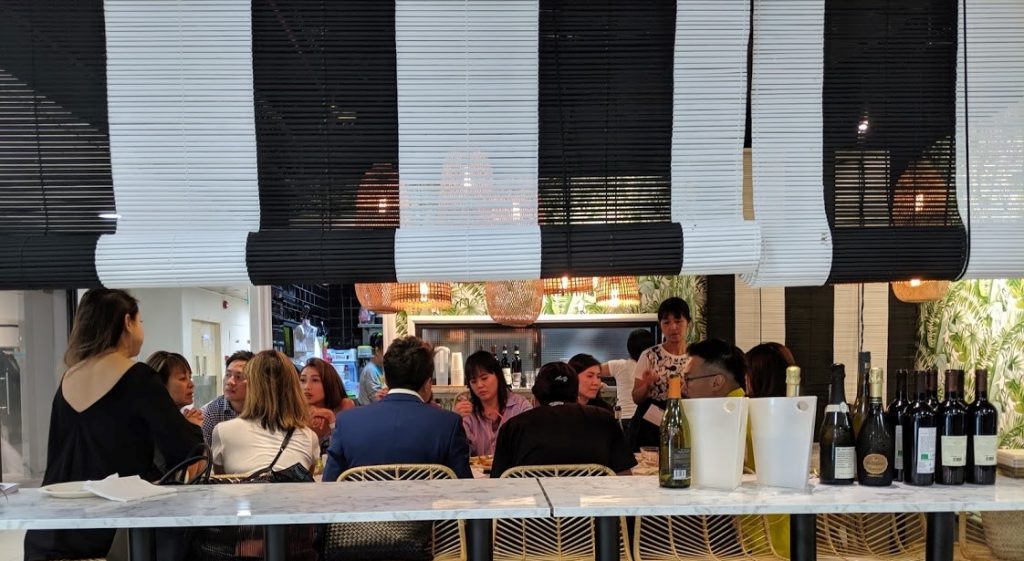
Understanding What’s Happening to the F&B Industry
If we boil down all the F&B anger and frustration into one question, it’s this:
How should the economic pain be split among the following parties?
1. F&B owners and employees
2. Private Landlords and Public REITs
3. Delivery companies and self-employed contract drivers
4. Government
5. Consumers
Depending on who you ask, you’ll get a different answer.
I asked Shanmei from Penang Kitchen, who recently returned to Singapore from New York in 2018. Shanmei comes from a finance background. While she understands the plight of restaurant owners, she also has a more dispassionate, outsider’s perspective on the Singapore F&B ecosystem at large.
Shanmei helps to manage Penang Kitchen’s two locations with her mother; they have one branch in Bukit Timah, and the second location at Far East Plaza on Orchard Road.
Since the circuit breaker began, the revenues at both Penang Kitchen locations have taken a major hit.
The Bukit Timah branch has a loyal community following, so revenues are only down by 30-40%. At the Far East Plaza location, on the other hand, the revenue hit has forced Shanmei to shut down the location following the tighter circuit breaker measures.
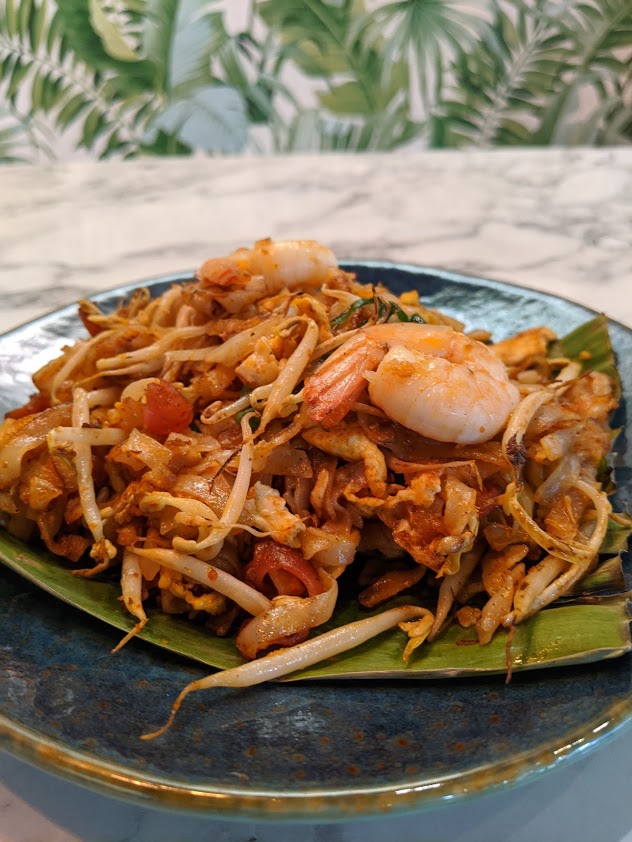
The Biggest Problems F&B Operators Face During the Covid-19 Circuit Breaker
Shanmei is part of a ‘#SaveFnBSG’ Whatsapp group, consisting of over 250 plus members of the F&B industry. The sentiment within the group is clear: rent and delivery are their two biggest pain points during this circuit breaker.
Shanmei’s personal experience with landlords has been mixed. The Bukit Timah location is owned by a small, private landlord. He approached Shanmei’s mother after Singapore’s February Unity Budget, which provided property tax rebates of 15% for establishments in the food services business, was announced. Without being asked, he offered them two rounds of rent reduction equal to 25% for the next 4 months. .
Far East Plaza, on the other hand, has been a different story. When the Unity Budget was unveiled, the landlord’s initial offer was 50% of the 15% property tax rebate they received in the first package. This amounted to a 7.50% rent reduction, while the landlord tried to pocket the remainder of the tax subsidy. This was before the government mandated in April that landlords pass on the full property tax rebate to their tenants.
Among her peers, Shanmei sees no pattern as to which types of landlords are more accommodating.
“I’ve heard of large real estate groups like Capitaland and UIC, who’ve gone beyond what they’ve been required to do by law,” explains Shanmei. “Other colleagues have been struggling with small private landlords, who aren’t willing to budge at all.”
This brings the discussion back to whether these landlords are short- or long-term thinkers, for the former would see the obligation as a form of penalisation. The latter would realise that such a move in fact helps to prevent rental terminations and help keep premises rented out. After all, landlords and tenants share a common fate.
Singapore’s Food Delivery Ecosystem
Besides rent, the second biggest problem Shanmei faces is her delivery margins. Since the circuit breaker began, Penang Kitchen orders have been split roughly 75% for delivery and 25% for takeaways. While takeaway profit margins are comparable to dine-in, the delivery margins through food delivery platforms like GrabFood, Deliveroo, and FoodPanda are razor thin.
While Shanmei is bound by her terms of service not to divulge the exact commission amount these platforms take, an independent search reveals a commission rate of 30-35% per order.
“If the circuit breaker gets extended for another month on those same terms,” she says. “It’s probably lights out for some of my F&B peers.”

In response, Shanmei and her F&B colleagues have been rushing to increase their digital presence, and set up online ordering systems. They’ve been scrambling to contract their own logistics, often using private delivery drivers, who will get a more equitable share of each order.
This all comes with its own set of challenges, like creating brand awareness, and managing the high friction of order and delivery, something Shanmei and her peers are still working through.
F&B Owners’ Honest Takes on the Government’s Support Measures
To assess the recent measures announced by the government through the triple bill Unity/Resilience/Solidarity Budgets, as well as the enhanced support during the extended circuit breaker period, I asked Shanmei and her F&B colleague Yen, owner of Sum Yi Tai Cantonese Tapas restaurant, to weigh in.
As unofficial representatives of the F&B Whatsapp group, the challenge has been to keep up-to-date with every new support measure, as both F&B and policymakers have had to respond to fast-moving events.
The most recent version of the Jobs Support Scheme (JSS) provides 50% payroll relief to F&B employers, covering them until the end of year. In addition, wage support for April and May 2020 will be topped up to 75% for Singaporeans and PRs for all sectors to support firms during the circuit breaker period. Payroll is typically around 30-50% of F&B expenses, so a 75% rebate provides much-needed relief.
For Shanmei, whose restaurants employ mainly migrant full time workers and Singaporean part-timers, the payroll relief hasn’t been as significant. For example, two of her cooks are Malaysian (it’s Penang Kitchen after all, not Yishun Kitchen).
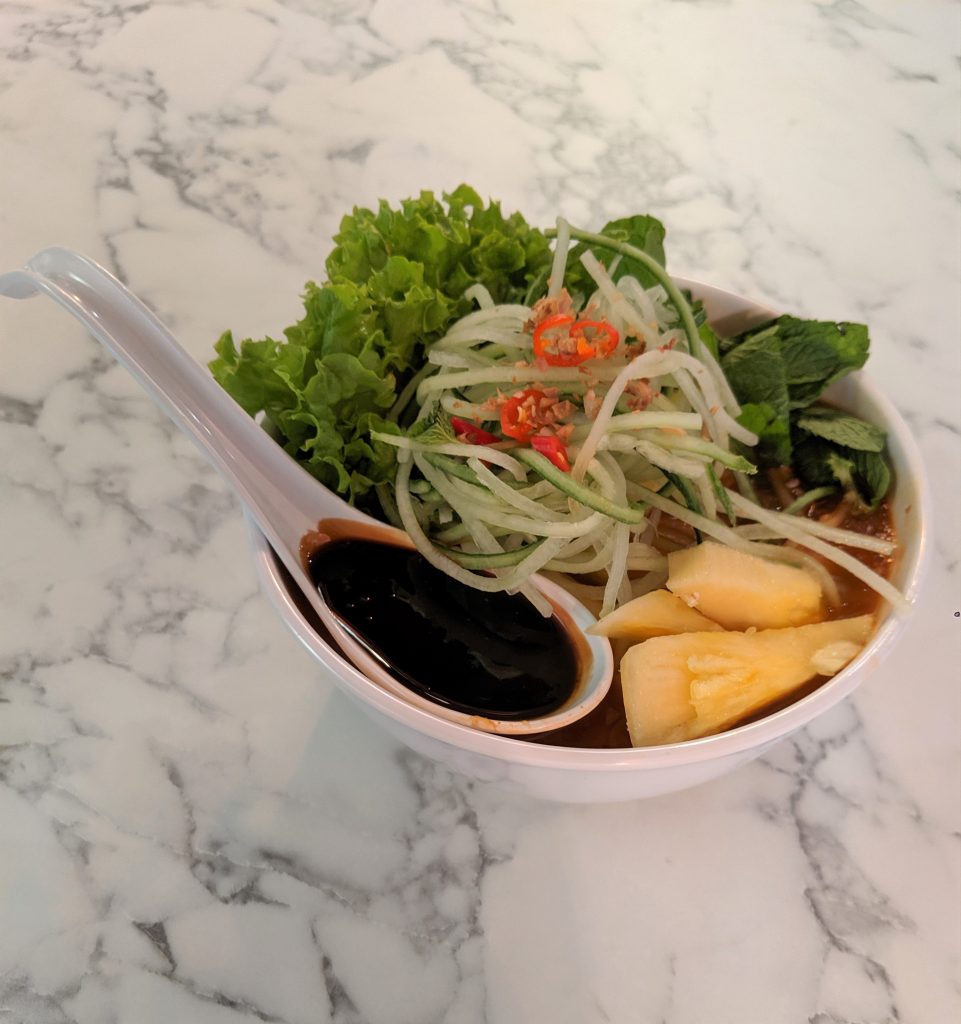
She’s also had to provide for some of her migrant worker accommodations after March 31st out of pocket. But the foreign worker levy waiver for April 2020, as well as the foreign worker levy rebate of $750 announced in the latest Solidarity Budget has helped her cushion this added cost.
Closer to date, the government announced that the foreign worker levy due in May 2020 will be waived as well, and that the rebate of $750 will also be given in May 2020.
For Yen, who employs Singaporean/PR staff, the government’s gesture is greatly appreciated.
“I would characterise the measures as the best they can do in a fast-changing climate such as this. Measures that are practical, to the point, and kind,” Yen says.
The rest has to be up to F&B operators themselves. When revenues have dropped by 90% in some cases, F&B owners will need to call up the grit and hustle that brought them here.
Yen has been doing her part to drive traffic to her store, while also supporting her community. Her restaurant Sum Yi Tai has started a ‘pay it forward’ initiative when customers buy meal vouchers that can be claimed now against delivery / take out orders or anytime later on. For every $25 voucher purchased, she donates one hot meal to The Food Bank Singapore to support their #FeedtheCity movement that helps those displaced by Covid-19.
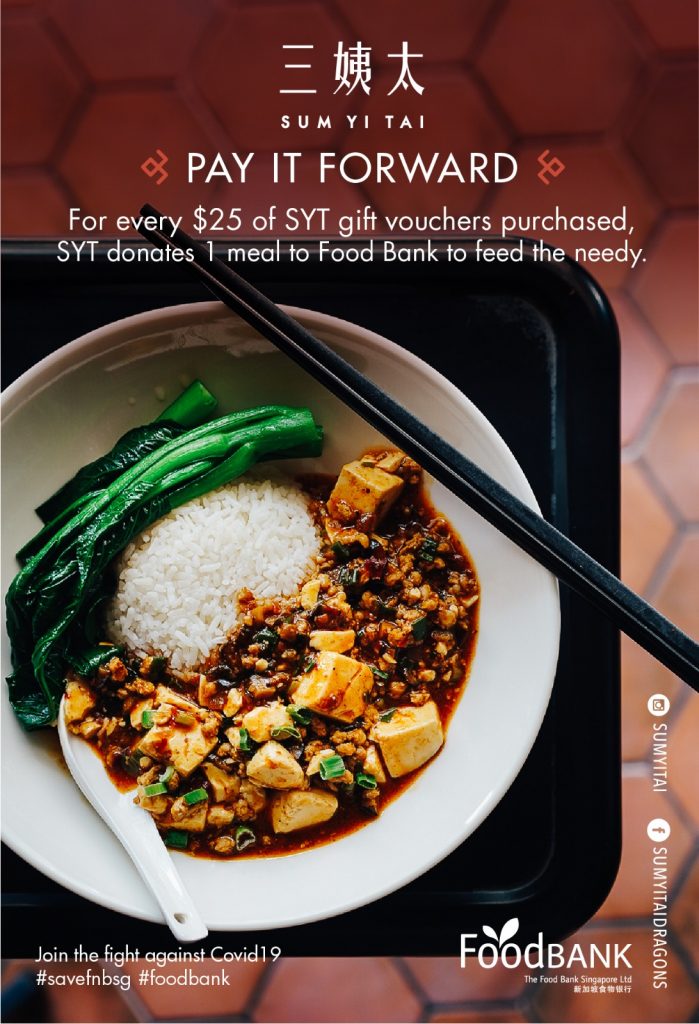
Down the road, F&B owners like Shanmei and Yen can also consider the credit financing schemes the government has introduced for small businesses. As announced in the Solidarity Budget, eligible enterprises may borrow up to $5 million under the Temporary Bridging Loan Programme, with the interest rate capped at 5% per annum. The government will provide 90% risk-share on these loans for new applications initiated from 8 April 2020 until 31 March 2021.
The Need for Mutual Support and Long Term Thinking in the F&B Industry
But putting aside labels of F&B ‘bad’ or ‘good’ eggs, the only distinction that matters in the F&B industry is the one between short- and long-term thinkers. Every party in F&B needs to set aside their kiasu instincts and think further down the road than the next month’s revenue.
Landlords are perhaps the easiest party to paint as bad eggs.
But the savviest landlords understand that pain, like profits, can also be managed. And it’s often in the longer term interests of landlords to do so proactively, working with their tenants to come to a reduced rent agreement on terms acceptable to both parties.
“If landlords are telling themselves that there will always be other tenants, they are deluded, and will be in for a shock when the reality of this downturn hits them,” says Yen.
And if Singapore wants F&B owners to decide their own destinies, they at least need to be given a fighting chance to stay open during the circuit breaker.
Despite this near term turbulence, the Transformation and Growth strategy announced at the Unity Budget remains relevant to the industry and the country’s long-term positioning. For instance, the Enterprise Grow Package, which helps enterprises identify business needs, adopt pre-approved digital technologies, and take the first steps to enter new markets, continue to offer a lucrative path forward for F&B.
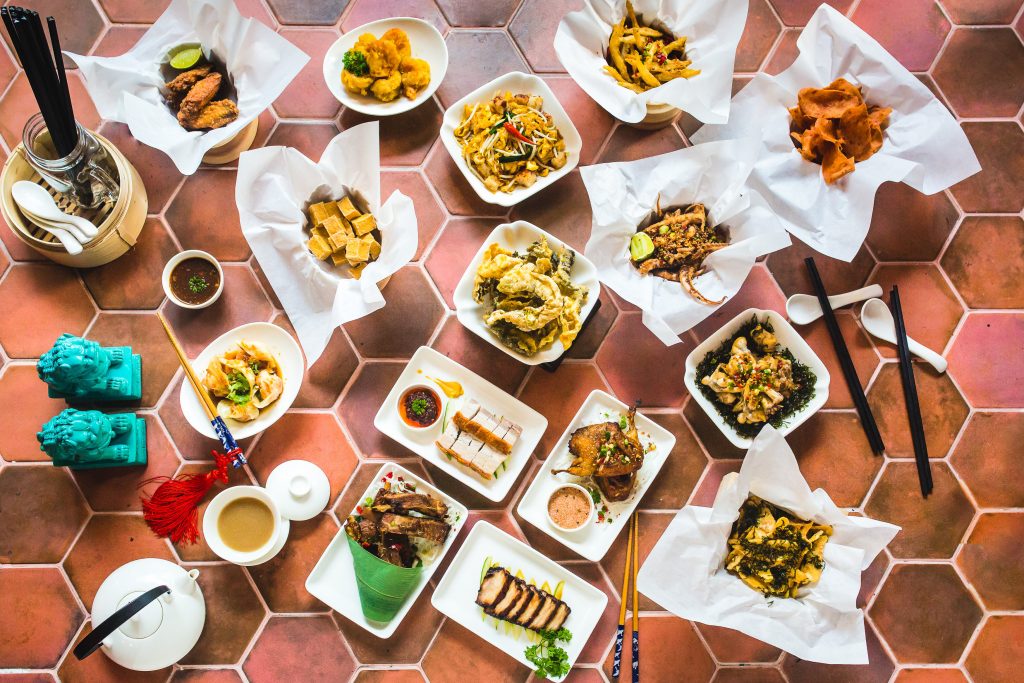
Singapore Consumers Should Also Think Longer Term
Towards the end of my interview with Shanmei, I decided to play devil’s advocate.
Why do F&B operators get to play the martyr? Why is everything the fault of greedy landlords and parasitic delivery companies?
If you got into the F&B industry because you were passionate about food and feeding people, does the market owe you—or anyone for that matter—the idealistic pursuit of your passions? Why not let all of F&B sink or swim on their own? Let the most creative and adaptable survive?
Shanmei had a ready response for me.
“You know the F&B stalls you used to like? The ones that got so popular they attracted investors to expand their franchises across Singapore?” she asked. “And the more locations they opened up, the worse the food quality got.”
Shanmei’s point is well taken: smaller F&B owners who are without deep-pocketed investors or the necessary expertise will need longer than a few months to ‘sink or swim’. There is no doubt that traditional F&B businesses will need to make adjustments and be prepared for the digital future, which is coming sooner than expected. Survival of the fittest, and all that. Nevertheless, it would be unreasonable to expect the cream to quickly rise to the top amidst an unprecedented global pandemic.
If consumers, like landlords, are only interested in short-term gratification over a sustainable F&B ecosystem, then we too, will ultimately pay a price.
Instead of supporting our neighborhood hawker centre through this short term crisis, some of us might prefer our food at the press of a button, delivered fast, convenient, in whatever quantity we choose, while we sit in air-conditioning WFH-ing on our laptops or ‘Netflix and chill’-ing on our sofas.
To this I say, fine. That’s your prerogative. But don’t turn around and complain two years later, when all you’re left with are F&B franchises serving tasteless shadows of the dishes we used to love.
Covid-19 has changed the way in which we go about our way of life, possibly for good. Whether for better or worse, there will be a new normalcy that we will have to adapt to. But what’s more important is that we will need to learn to look out for one another since we are all in this together.
Do you have a favourite F&B vendor you’re supporting through this circuit breaker? Tell us at community@ricemedia.co.

